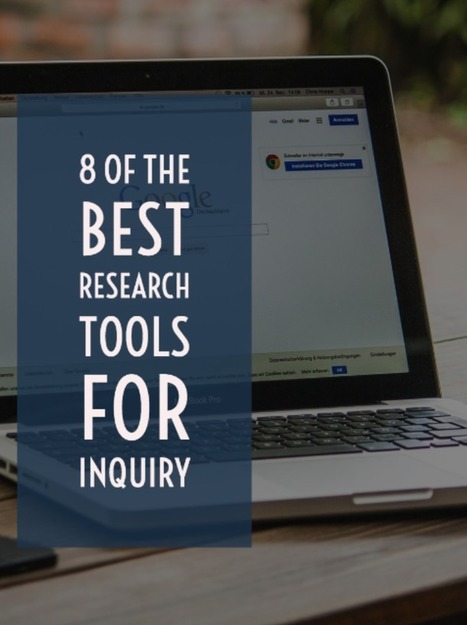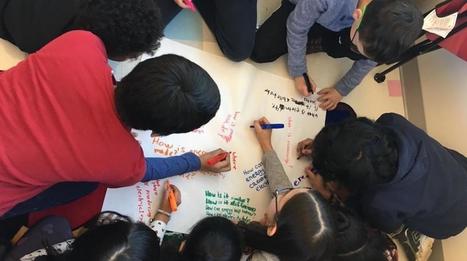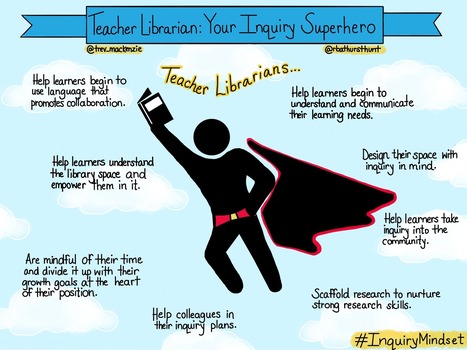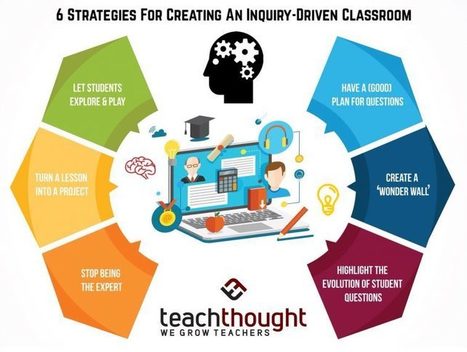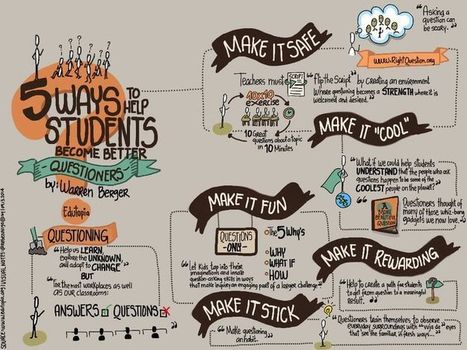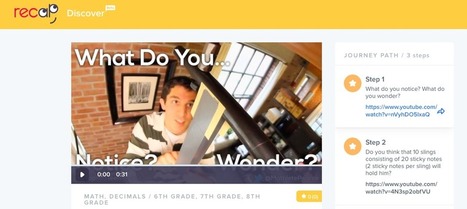 Your new post is loading...
 Your new post is loading...

|
Scooped by
John Evans
|
As a society, we tend to focus a lot on answers. Answers are solutions to problems. We tend to give less prestige to questions. Everyone has them. They’re easy. It’s the answers that take the work.
This overlooks the power of questions. Asking questions gives you a better understanding of everything: the situation you are in, the challenges you are facing. Life.

|
Scooped by
John Evans
|
"“Alexa, What’s the temperature?”
“Alexa, How much does Kevin Durant make?”
“Alexa, play Beastie Boys.”
These commands are more and more common around our house as my kids learn how to get answers to their questions and access content. My 8 and 10-year-olds have grown up in a world where they can command information and content on demand, where they can pick their favorite TV show on Netflix, or watch videos on YouTube on any topic that piques their interest. They know a vast amount of information exists for their learning, and they can tap into multiple devices to access information, people, and entertainment—whenever they want and wherever they are. But it’s fair to point out that just because we can find the information doesn’t mean that a Google search should be our default.
The challenge here is that technology increasingly provides easy access to answers, but if we focus only on the answers and not on thinking, questioning, and solving, we rob students of powerful learning experiences. Perhaps more significantly, we fail to develop the 21st-century literacies that will empower them to solve complex problems and be lifelong learners. As technology advances, the role of educators (and parents) to model and guide learners to find information and to learn to how to ask better questions has become even more crucial in the development of critical thinkers. "

|
Scooped by
John Evans
|
Compare anything to find similarities and differences. Diffen is the largest collection of unbiased comparisons in the world. Read, improve or create comparisons.

|
Scooped by
John Evans
|
"Cheryl Zubrack is a master in the area of inquiry education, and she spoke with me at length in a deep-dive on the topic. We touch on home renos as real-life inquiry learning, cluster zero of the curricula, slowing down the learning process, inquiry into inquiry, structures and misconceptions of inquiry, conceptions of power in the classroom, working with Task – Intent – Criteria, credits/marks/exams, finding inner power, the hierarchy of questions and more!"

|
Scooped by
John Evans
|
Whether it be project-based learning, design thinking or genius hour, it's easy to get confused by the many education buzzwords floating about. But at their heart these pedagogies are all student-centered and there are commonalities across them that are the key to their success and far more critical than keeping the jargon straight.
Naturally, educators want to understand each of these frameworks in order to make an informed decision as to how to best meet the needs of their students. The "Tree of Inquiry" is a visual guide for educators who are interested in shifting their practice but are unsure where to begin. Inquiry-based learning is the foundation for all of these student-centered strategies -- students are asking their own questions, discovering answers and using their teachers as resources and guides. Schools and classrooms where deep inquiry is clearly at work invariably possess four specific characteristics no matter the specific type of inquiry utilized.

|
Scooped by
John Evans
|
“Register for Tomatosphere™, a free program where Kindergarten to Grade 12 students across Canada use "space" tomato seeds to investigate the effects of outer space on seed germination. Operated by Let’s Talk Science, Tomatosphere™ teaches students the skills and processes of scientific experimentation and inquiry.”

|
Scooped by
John Evans
|
Curiosity is a powerful catalyst for learning. Children want to understand the world around them, and naturally reveal their interests by asking questions – sometimes even too many questions! As educators, we may feel pressure to keep going with our intended lesson plan or to get to our ‘point.’
This may lead us, as teachers, to push ahead instead of listening to a child’s question, or to answer it briefly and move on. The goal of education should be to nurture and grow minds that are ready to solve problems and think critically, and asking questions is a necessary skill in that process.
For this reason, we want to prioritize question asking and place it at the forefront of our mission for our classrooms and our students.

|
Scooped by
John Evans
|
As an administrator, whenever I walk into a teacher’s classroom, one of the first things I almost always subconsciously look for is whether or not the students are engaged in inquiry. However, telling a teacher, “Your students need to engage in more inquiry,” is comparable to letting a comedian know she needs to be funnier or asking a pizzaiolo to make a better dough. And, vague directives in the absence of explicit instruction typically generate anxiety.
To avoid these anxieties, and for progress to actually take place, we need to drill down to the nitty gritty and be as explicit as possible. In other words, we need to be explicit about being explicit and leverage specific strategies to comfortably move forward for the benefit of our students.
With these thoughts in mind, I’ve been obsessing over inquiry’s common denominators – the strategies or drivers we should always consider when implementing an inquiry-based lesson.
That being said, here are the six drivers of inquiry-based learning. And, while I don’t think every lesson or activity must have all six, I do believe that once we (and our students) become comfortable with an inquiry approach, all drivers will naturally find a way into learning experiences on a regular, if not daily, basis.

|
Scooped by
John Evans
|
Updated: I've updated this post and page since publishing my most recent book about student choice. I'd love for you to add resources you've found in the comments section of this post so I can

|
Scooped by
John Evans
|
Learning how to ask good questions is a cornerstone of learning and living. It’s a practice we use every day. So much of our success in life depends on asking the right questions. So how do we actually do it? It’s easy when you have a solid process.
When we ask good questions in education, the benefits are immeasurable. It lets us clearly define problems and expectations. Students’ research becomes more productive. They have better team communication. It lets them view challenges proactively. It encourages deeper reflection and better learning processes.
|

|
Scooped by
John Evans
|
Educators want their students to ask questions. Indeed, research has found that students only ask about 1/5th the amount of questions educators would like them to ask. Yet many educators report that it can feel like “pulling teeth” to get their students to ask questions, and other research has found that educators ask about two questions per minute while students ask about two questions per hour. Which students are the ones formulating two questions per hour? One study found that lower income students tend to pose fewer questions at school than their moderate-income counterparts, and another study found that lower achieving students tend to ask fewer questions than their higher achieving peers. Not only are students asking markedly fewer questions than the teacher and significantly fewer questions than teachers would like them to ask, some students are asking fewer questions than their fellow students.
How can education remedy this feeling of “pulling teeth” and actualize a vision of all students asking their own questions and classrooms brimming with curiosity? One way is by deliberately teaching students how to ask their own questions.

|
Scooped by
John Evans
|
We teachers are constantly reflecting on our practice and professional growth. We want to make sure we are doing the best for our students despite the demands of constant assessment, unanticipated curricular changes and continually changing student needs and demographics. Combined with our own desire for excellence, this is so overwhelming. I’ve attended really inspiring professional development, only to figure out that teaching materials, specialized training and additional technology are out of reach for most school budgets. Where can teaching professionals go for support as we try to improve?
I have discovered rich support and learning in my own backyard when I have collaborated with my teacher-librarian. This educational professional is often under-utilized in a school environment. Many teachers see the librarian interact only with students, but they are invaluable resources for teachers as well.

|
Scooped by
John Evans
|
In one of the episodes of “Brain Games with Jason Silva”, witnesses of a car crash are asked to estimate the speed of the car involved. Some estimated that the speed was about 10–20 mph, while some…

|
Scooped by
John Evans
|
6 Strategies For Creating An Inquiry-Driven Classroom by Irena Nayfeld, TeachThought PD Inquiry Workshop Facilitator Teachers of young children juggle a lot

|
Scooped by
John Evans
|
Jeopardy! has been on the air, in one form or another, since the 1960s. The modern Alex Trebek-hosted incarnation of the show—whose famous theme song is now in your head (sorry!)—began in 1984 and still airs about 230 episodes every year.
There is an art to a Jeopardy! clue. Its answers-in-search-of-questions exude a certain tone and tenor that’s different from trivia offerings from Who Wants to Be a Millionaire, HQ, The Weakest Link, or even a throwback like You Bet Your Life. But the writer’s room is also a factory, one that must churn out 61 clues per episode, which adds up to hundreds of thousands of clues aired during the show’s long run.

|
Scooped by
John Evans
|
In the age of information, factual answers are easy to find. Want to know who signed the Declaration of Independence? Google it. Curious about the plot of Nathaniel Hawthorne’s famous novel, “The Scarlet Letter”? A quick Internet search will easily jog your memory. But while computers are great at spitting out answers, they aren’t very good at asking questions. But luckily, that’s where humans can excel.
Curiosity is baked into the human experience. Between the ages of 2 and 5, kids ask on average 40,000 questions, said Warren Berger, author of “A More Beautiful Question,” at the Innovative Learning Conference hosted at the Nueva School. Young kids encounter something new, learn a little bit about it, get curious and then continue to add on a little more information with each new discovery. Warren says that’s where curiosity happens, in the gap between learning something and being exposed to something new.

|
Scooped by
John Evans
|
Inquiry Based Instruction has been an area of study for me for the last couple of years. In my opinion, teaching through inquiry is not only engaging for our students, but develops an essential skill that our kids need to be successful in the 21st century. In this post, I want to share a few of the resources I have been using for the last few years, as well as a few resources that I just learned about.

|
Scooped by
John Evans
|
Over the summer, I had a fascinating conversation with a group of educators. After spending several days discussing ways to encourage student inquiry, a technology specialist raised a pointed question: “What if the librarians already have a district-approved research process? Does what we’re doing conflict?” As I pondered her question, I realized a fundamental problem: inquiry and research had somehow morphed into synonyms.
Instead of answering her question, I posed another one: “Can students do research without inquiry, or inquiry without a formal research process?”
Having essential questions drive curriculum and learning has become core to many educators' instructional practices. Grant Wiggins, in his work on Understanding By Design, describes an essential question as: A meaning of "essential" involves important questions that recur throughout one’s life. Such questions are broad in scope and timeless by nature. They are perpetually arguable…
Via Ana Cristina Pratas

|
Scooped by
John Evans
|
This weekend was incredibly productive. Not only did I continue finishing my new front deck (yes, there is a math lesson in there) but I also learned about a really neat tool that stimulates curiosity, inquiry, critical thinking and collaboration while providing video feedback. I’m changing the course slightly with this post (what, not coding?!?) because I want to explore shifting pedagogy in how educators instruct, assess and evaluate student learning.

|
Scooped by
John Evans
|
Tomorrow’s economies will be inspired by students who are proficient in Science, Technology, Engineering and Math (STEM) subjects. Samsung is dedicated to helping people discover a world of possibilities, so we hope to help raise student interest in STEM subjects across Canada through innovative programs with our partners that contribute to building a better tomorrow. To excite students about the possibilities of STEM education, Samsung is launching the Solve for Tomorrow Challenge, giving schools across Canada the opportunity to raise interest in Science, Technology, Engineering and Math subjects among students by awarding winning schools CDN $500,000 in technology products. Plus, two grand prize winning schools will get a visit from Mitch and Greg of AsapSCIENCE. They’ll feature the winning project on their popular YouTube channel, AsapTHOUGHT, and host a STEM lab experience for the entire school!" Launching September 23, 2015
|
 Your new post is loading...
Your new post is loading...
 Your new post is loading...
Your new post is loading...






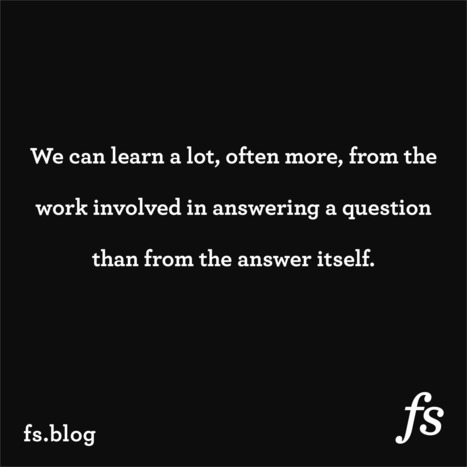



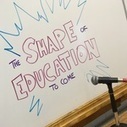
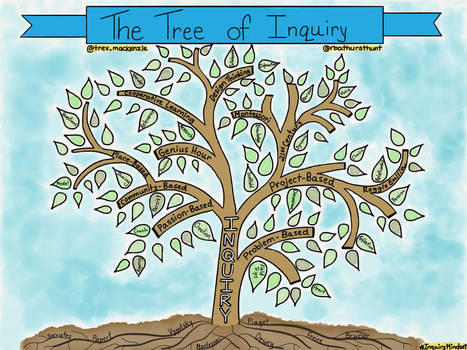



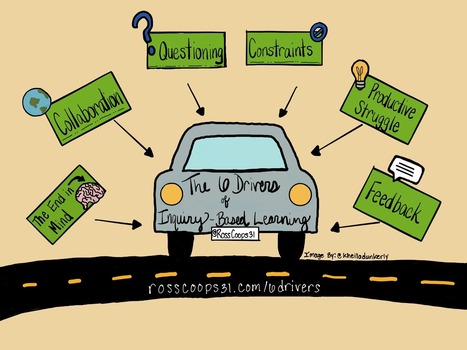

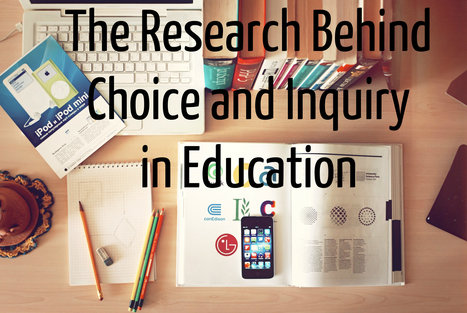
![Use These 5 Steps to Learn How to Ask Good Questions [Infographic] | iPads, MakerEd and More in Education | Scoop.it](https://img.scoop.it/9Ig5e-RUbd2Bd5JiwjpP7Tl72eJkfbmt4t8yenImKBVvK0kTmF0xjctABnaLJIm9)

